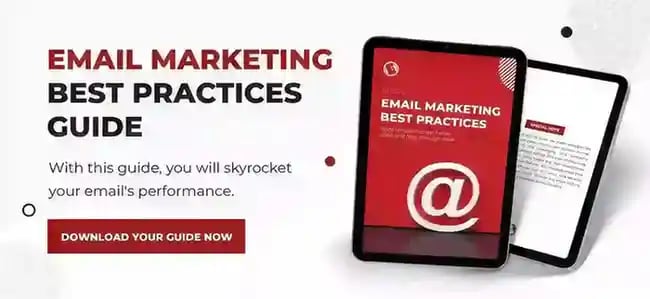Email marketing is still a highly popular and profitable form of advertising. The average email marketing campaign generates $36 for every $1 spent, and 347 billion emails are sent to 4 billion consumers who use email daily
However, email still has risks that businesses and consumers should be aware of. Every day, 8 billion spam emails are sent to US consumers. The annual loss from phishing/spoofing emails was over $160 million in 2022 and even with increased security measures, an average of $19 million was lost to email fraud in 2023. Because of robust improvements to email authentication, 46% of emails will not reach the inbox of the intended recipient.
Considering email has a 36:1 ROI, you should consider three email authentication methods (SPF, DKIM, DMARC) to help your legitimate email marketing efforts capitalize on all potential returns successfully.
What is a Sender Policy Framework (SPF)
SPF, or Sender Policy Framework, is the standard email authentication method that helps prevent spammers from sending messages that appear to come from a spoofed domain. If you are not familiar with the term, spoofing is a type of cybercrime where fraudsters disguise themselves as a legitimate business, such as UPS, Amazon, Apple, etc.
How SPF improves Email deliverability
SPF informs recipient email servers which domains, servers, and IP addresses can send emails on behalf of a company. In turn, this helps prevent spam and increases the likelihood that emails sent for legitimate purposes reach the intended recipients’ inboxes.
Another major benefit of SPF is that it prevents email addresses from being spoofed. This helps protect consumers against phishing scams. Businesses should use SPF to protect their email address from being spoofed and protect their consumers from phishing. SPF also helps improve email deliverability rates.
After you finish learning ways to improve email deliverability, be sure your marketing emails grab the attention of your target audience.
What is DomainKeys Identified Mail (DKIM)
DKIM authentication detects forged sender addresses by adding a unique digital signature to outgoing messages. This signature verifies the legitimacy of the email, allowing it to reach its intended inbox and not be flagged as spam.
How DKIM improves Email deliverability
DKIM uses public key cryptography to create an exclusive email signature for a domain. Because the signature is unique to that domain, no one can spoof the email address without getting flagged. Mail servers can review and verify the email signature before passing it along to a recipient’s inbox.
Like SPF, DKIM helps businesses and consumers protect themselves against spoofing and phishing. DKIM also helps boost the authority and credibility of your emails and shows consumers you are taking the extra step to secure your communications.
Businesses that want to add another layer of protection against spoofing should ensure they use DKIM authentication. By verifying their domain, they can prevent phishing scams using spoofed emails and domains that could harm consumers.
What is Domain-based Message Authentication, Reporting, and Conformance (DMARC)
DMARC is the final email security process you should be aware of; it performs a Domain Name System (DNS) verification, SPF verification, and DKIM signature validation. DMARC does an alignment test to verify that the “from-email" address matches the return path email address and the official business domain address. This additional layer of protection prevents spoofing and can stop the most sophisticated phishing attempts from reaching consumers.
How DMARC improves Email deliverability
DMARC reviews SPF and DKIM to verify the emails come from a legitimate sender. For SPF, it checks if the sender’s address matches the return path addresses. For DKIM, it verifies that the sender’s domain matches the email domain. Once DMARC confirms the SPF return path and the DKIM sender domain are aligned with the "from-email" address it forwards the email to the recipient's inbox.
email deliverability will only get tougher
As technology advances, email authentication protocols will become more restrictive. Google blocks 15 billion emails daily and stops 99.9% of all emails the G-mail AI classifies as spam, phishing, or malware.
In order for businesses to protect themselves while driving a high ROI through email marketing, it is crucial to ensure your organization uses the most recognized and accepted types of email authentication. SPF, DKIM, and DMARC have changed from "nice-to-haves" to foundational parts of any successful email marketing campaign.
How To Set Up SPF, DKIM, And DMARC to improve email deliverability
There are many email testing tools out there to help you get the most out of your marketing and enhance your messages. But before you dive into them, you should set up authentication frameworks.
If you are not a server administrator or don’t have much experience with computer technology, Eternal Works suggests you seek out the help of a professional. They can determine if your email domain was set up with SPF, DKIM, and DMARC, and make any necessary adjustments if you need to integrate these frameworks.
For the experts looking for general guidance, Google Workspace might be a good place to start.
Conclusion
SPF, DKIM, and DMARC are pivotal to successful email marketing. These email authentication protocols protect businesses from being spoofed and protect consumers from phishing scams. In addition to increasing email deliverability rates, these email authentication protocols also help you improve your business’s credibility.
When more emails can safely reach consumers, you can drive your email marketing ROI and grow your bottom line. Without the right protocols, you run the risk of being involved in spoofing and phishing scams that harm your business’s reputation.
Take the necessary steps to lay a strong foundation for your future emails. The right authentication will protect your business and consumers for years to come.



